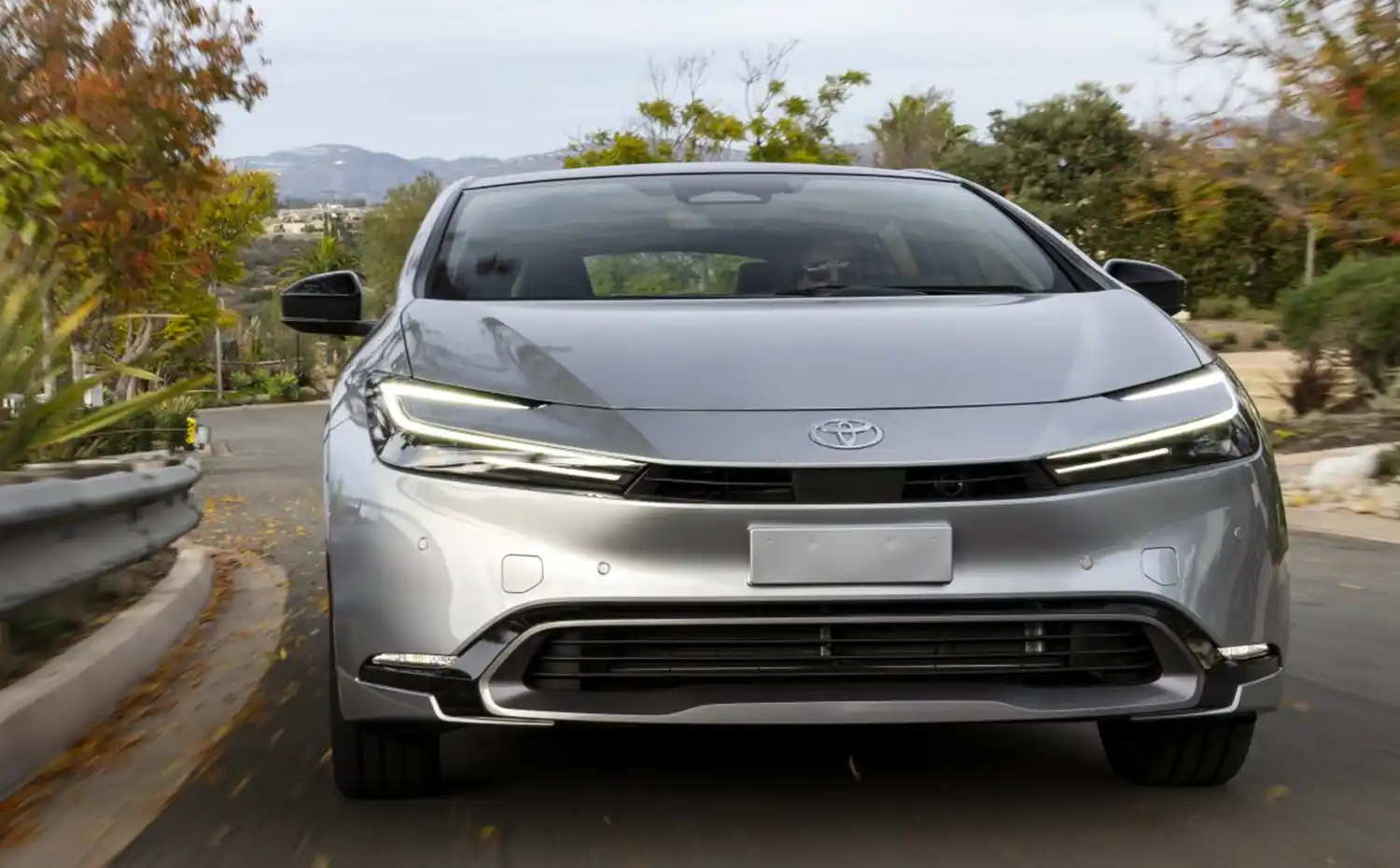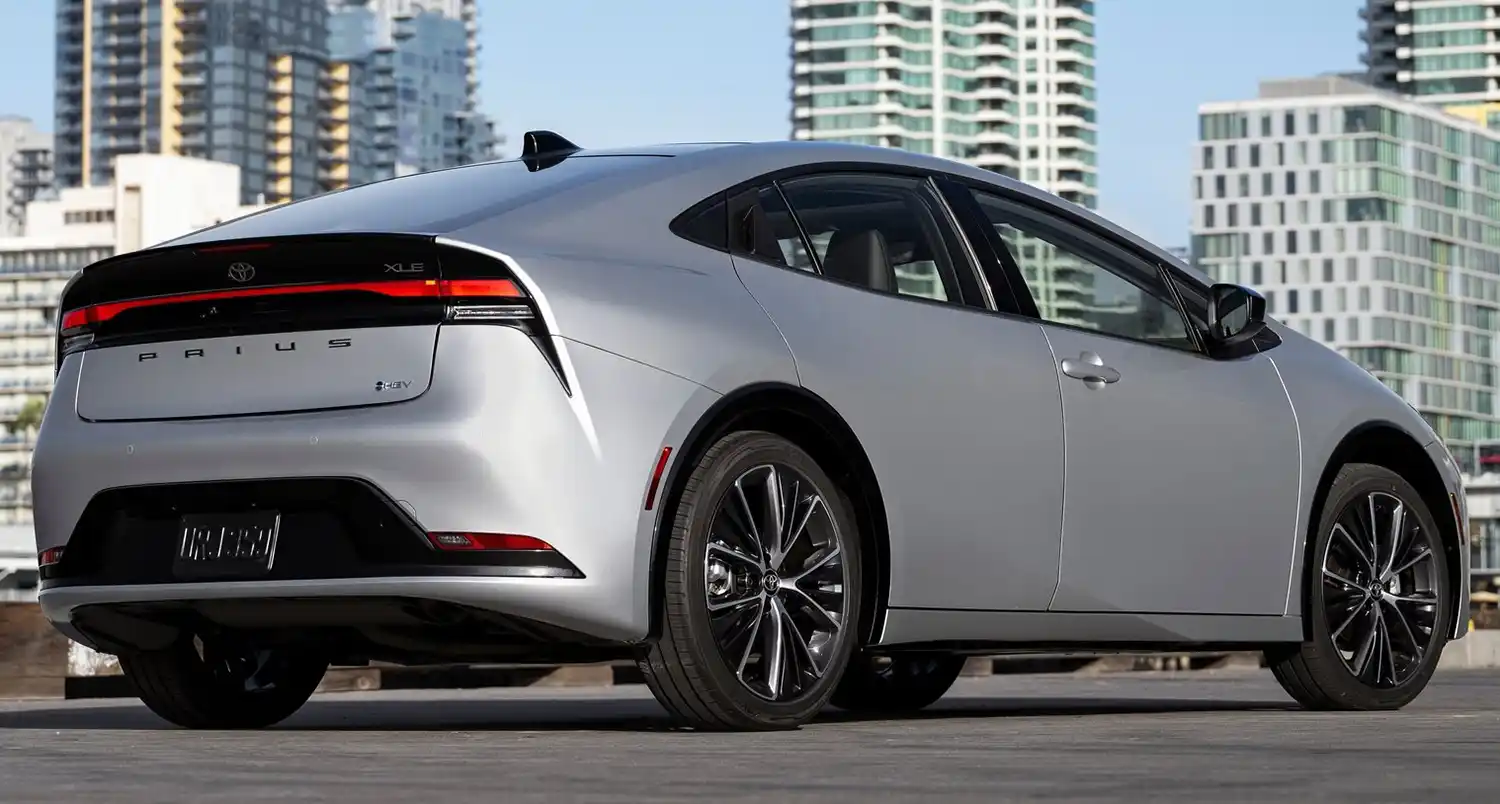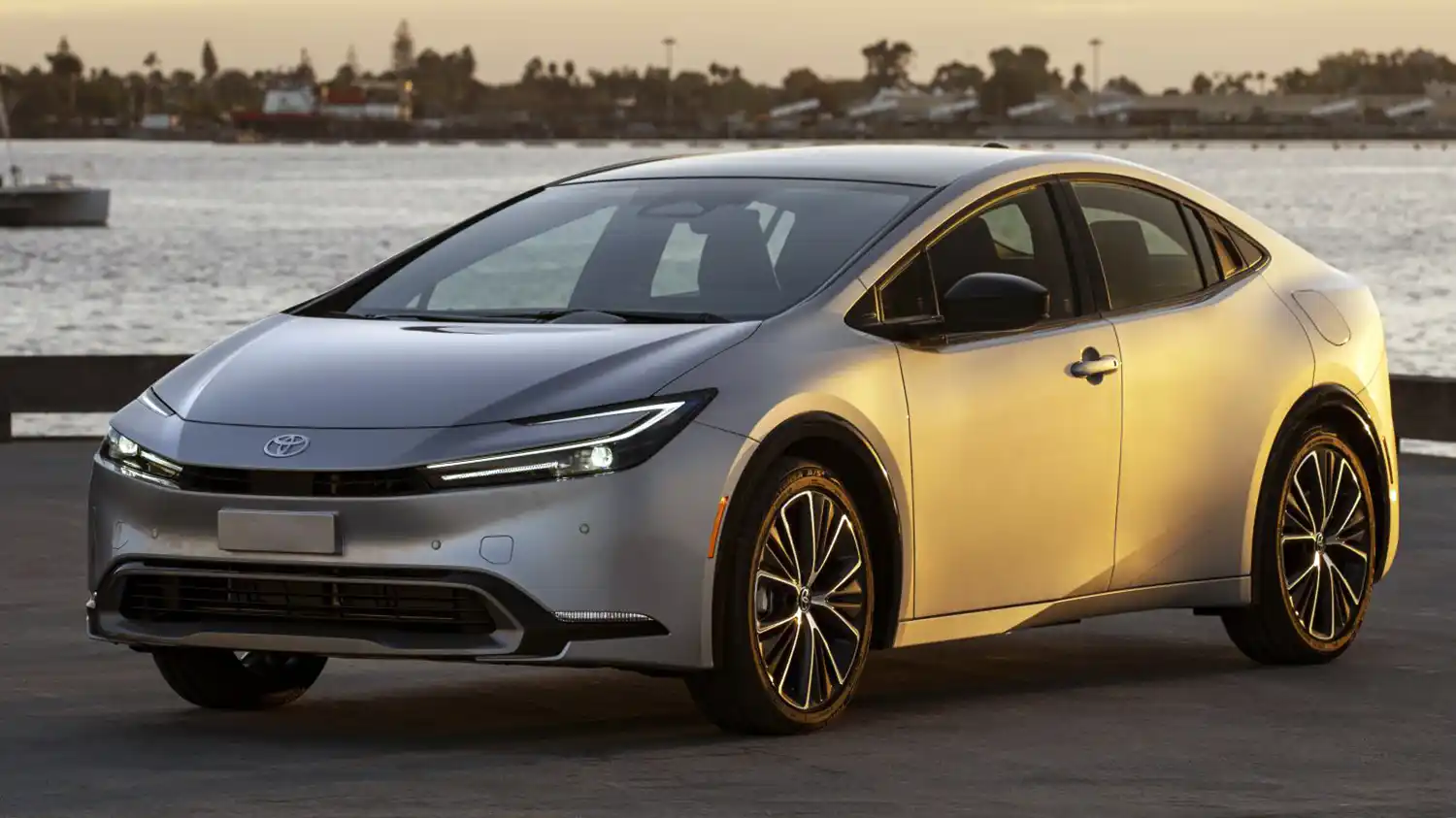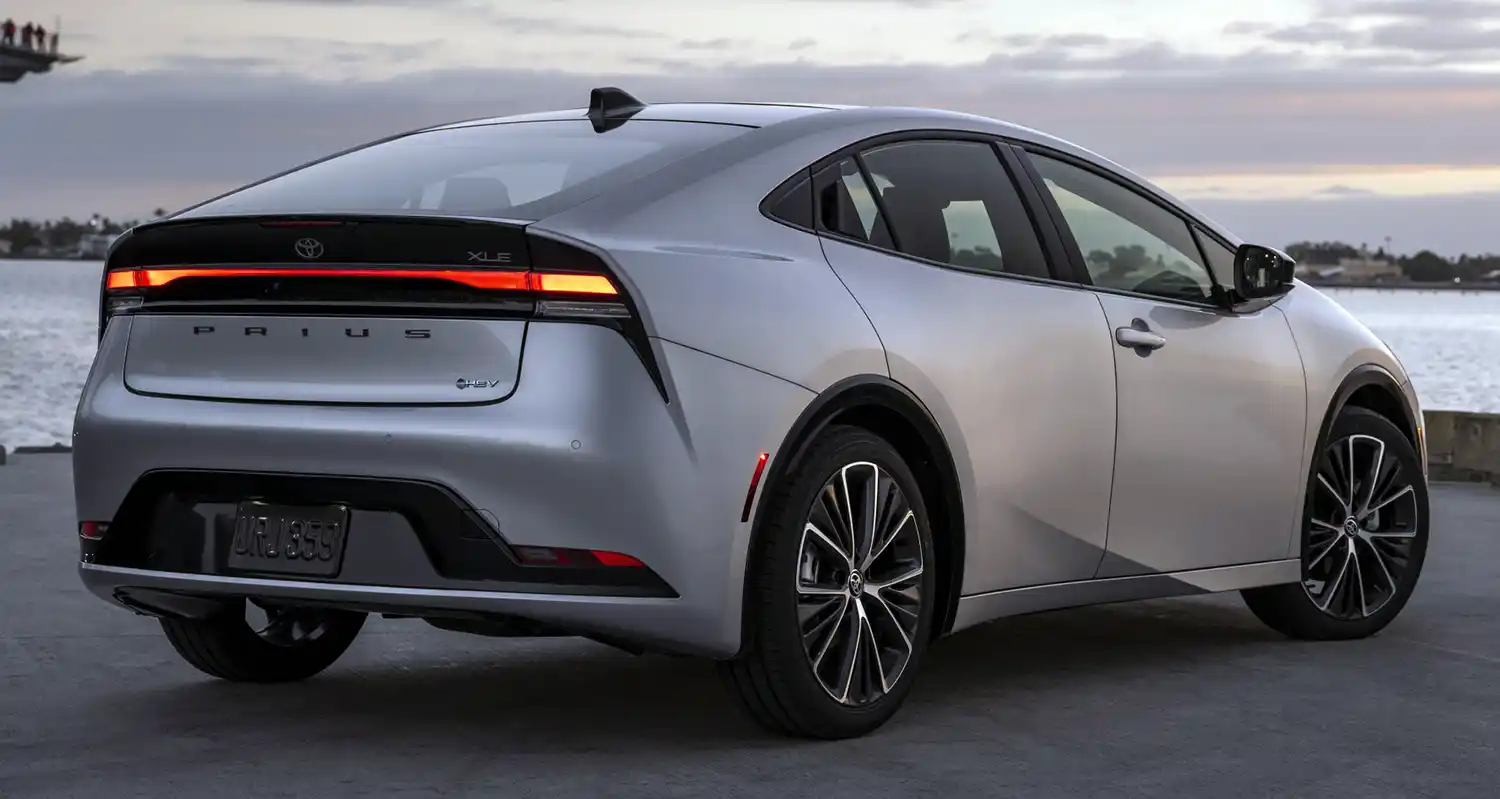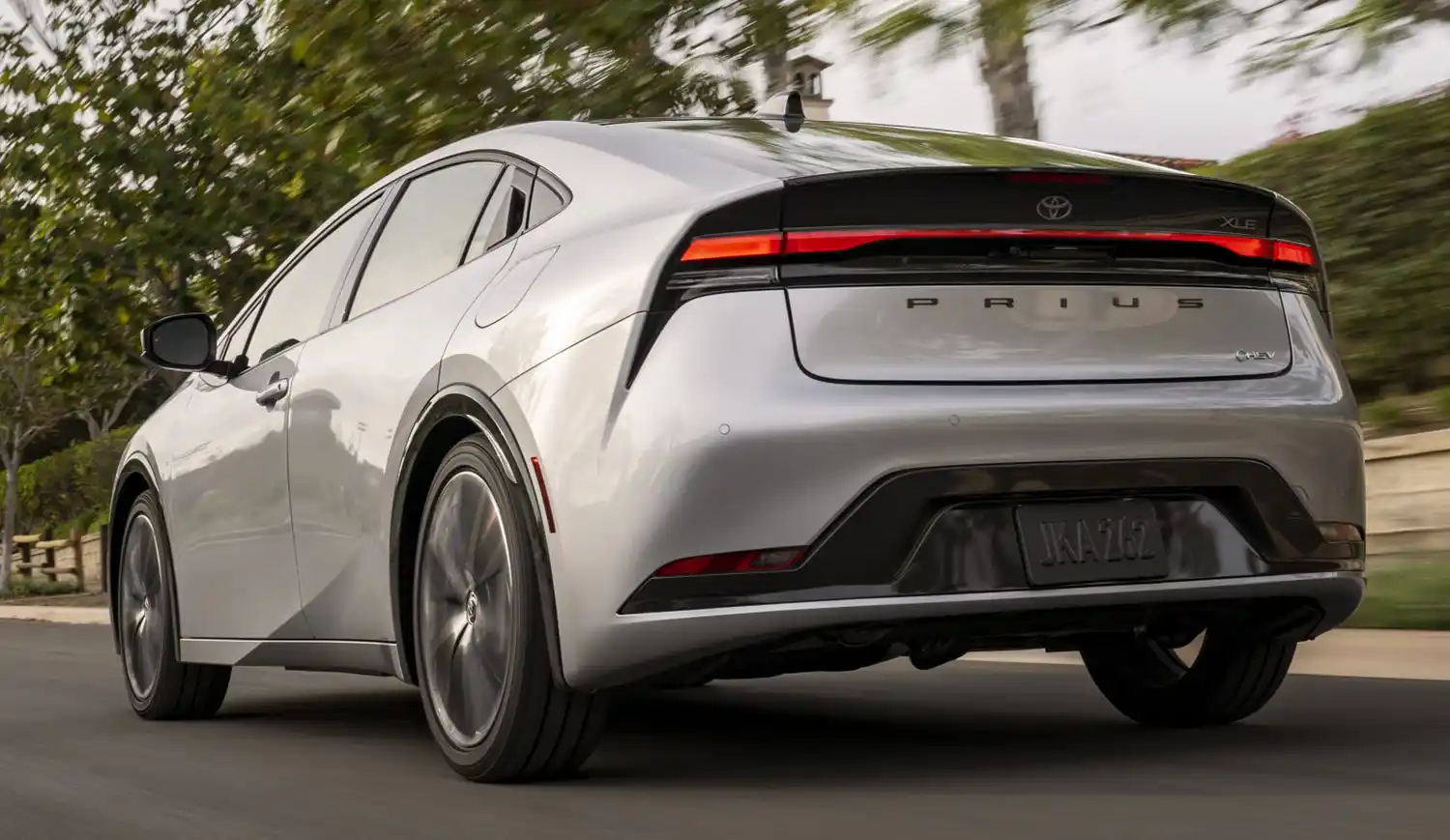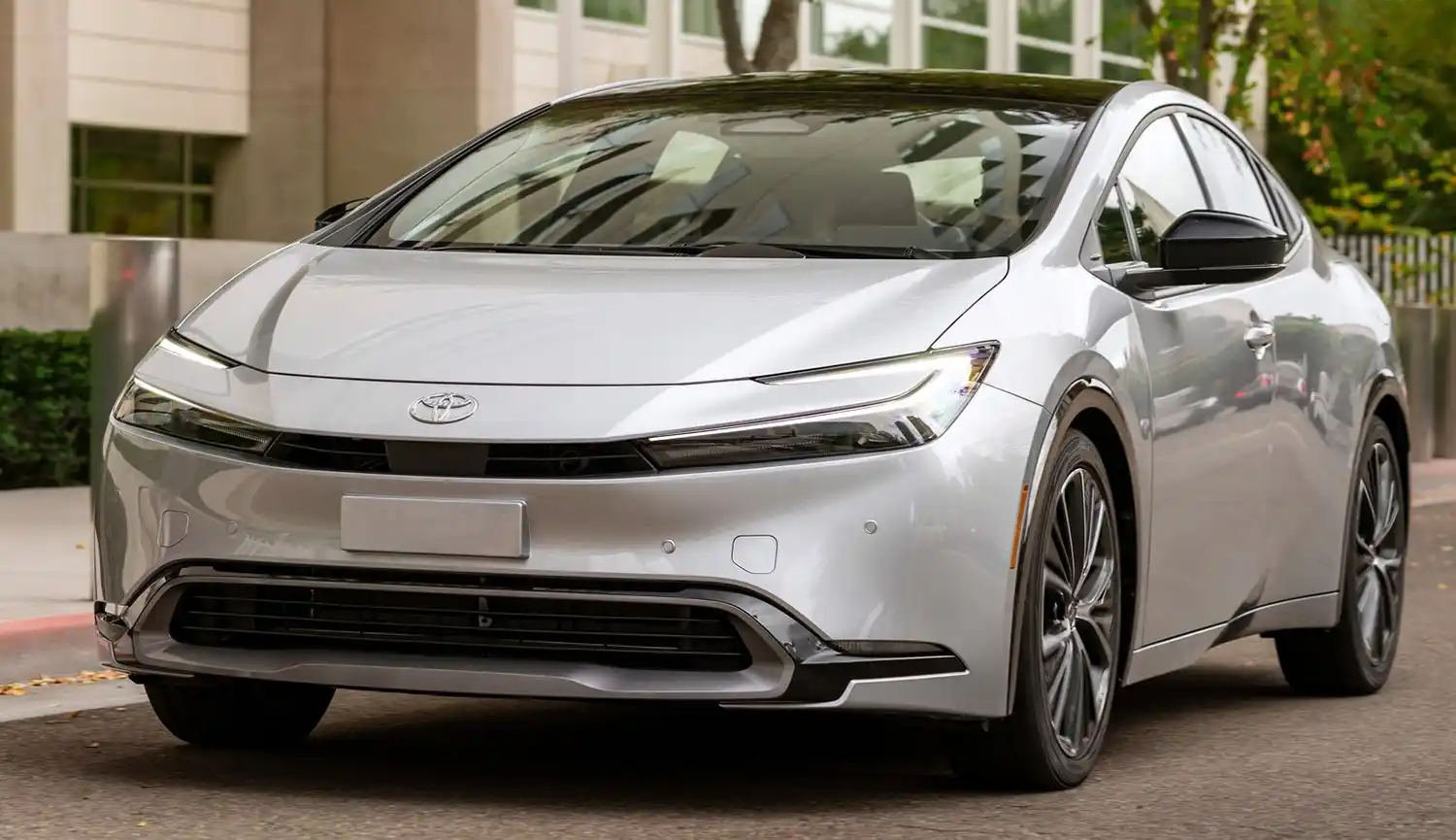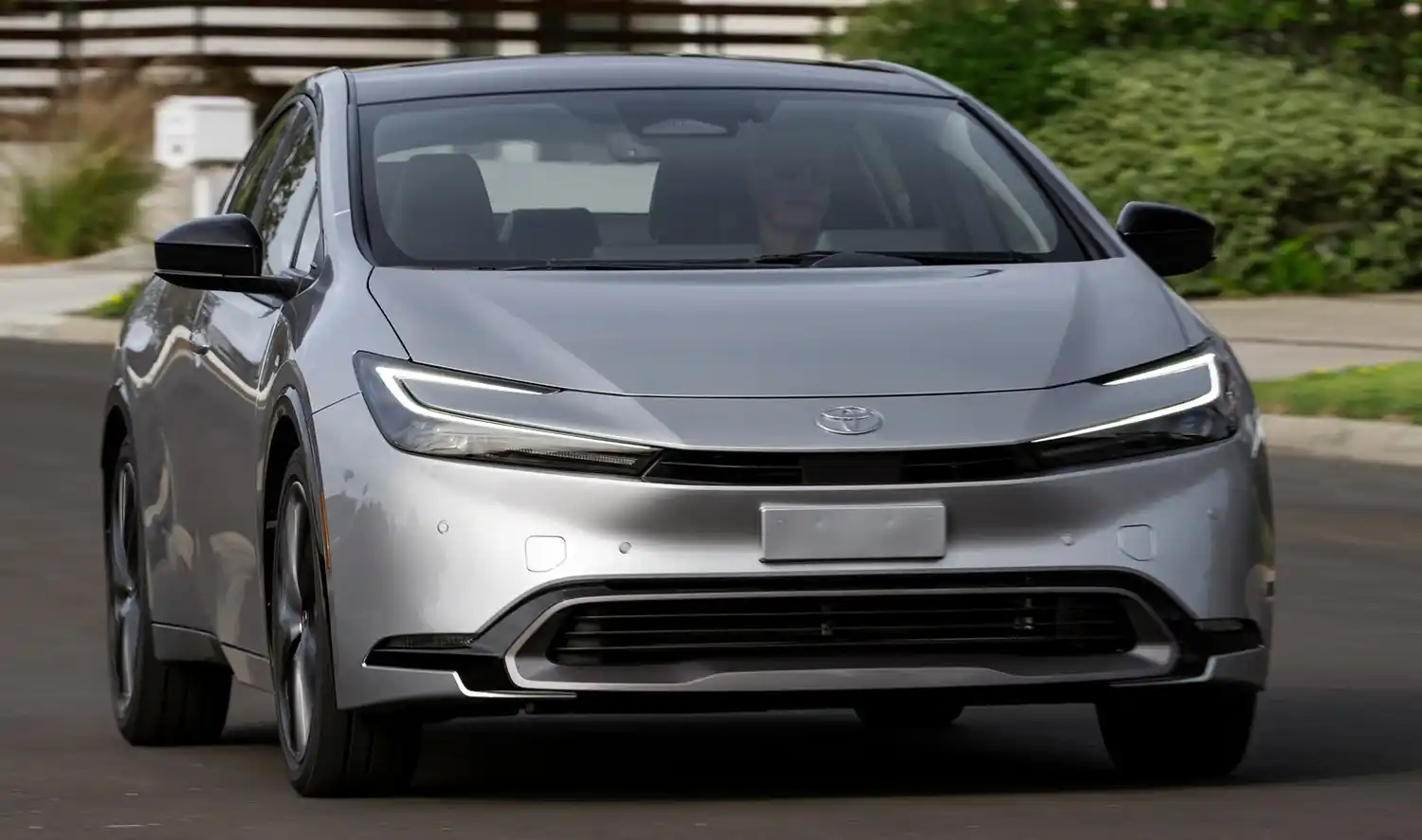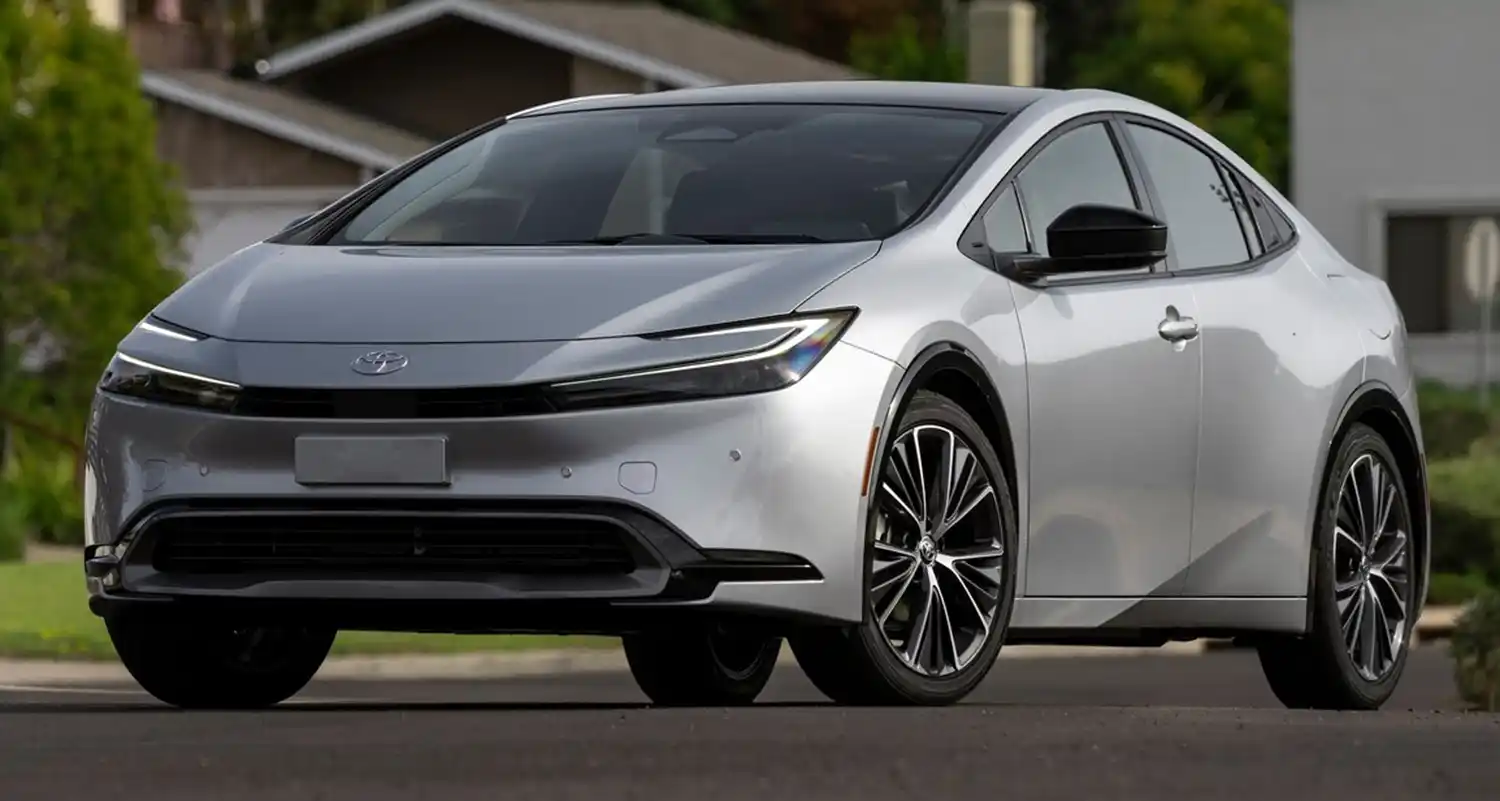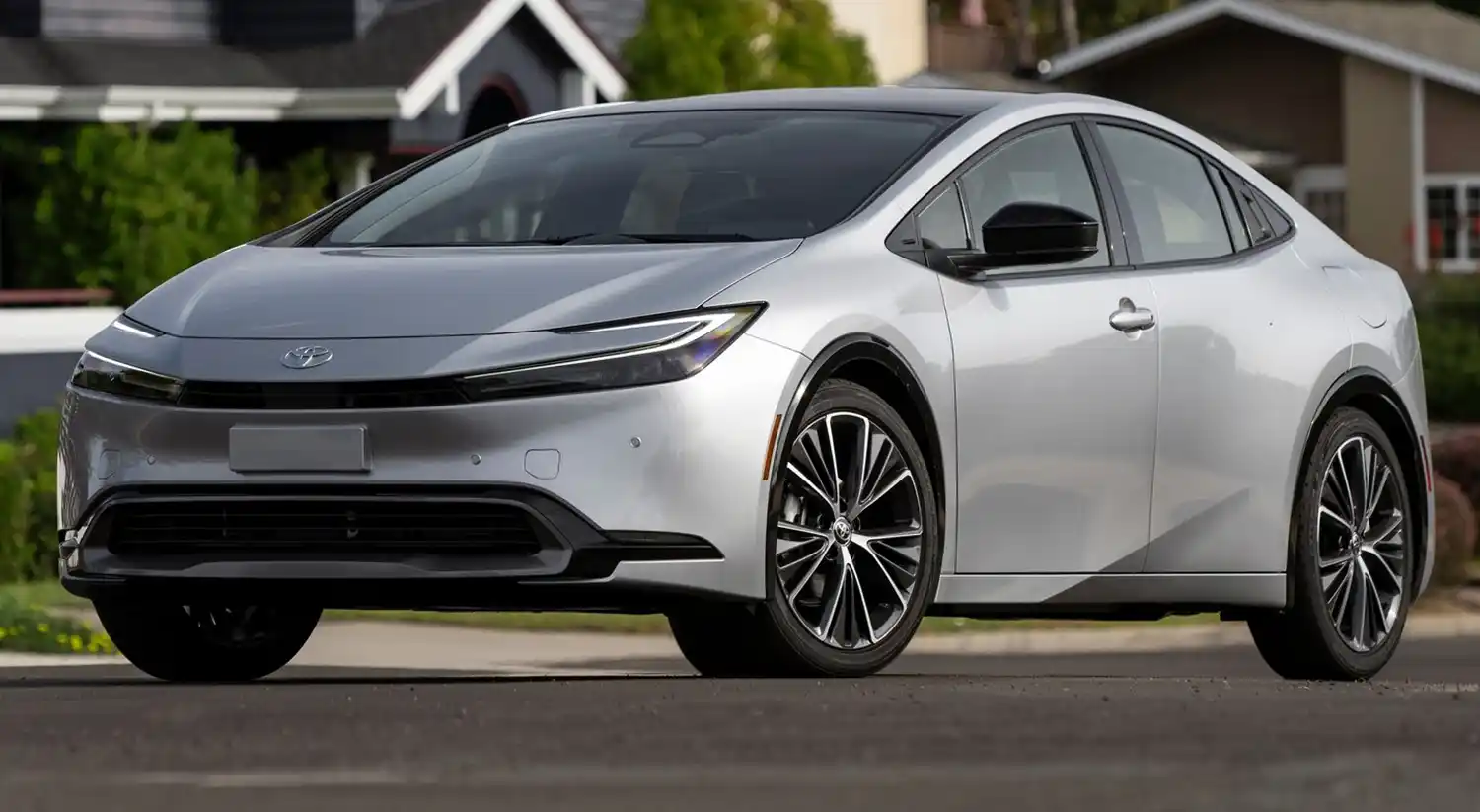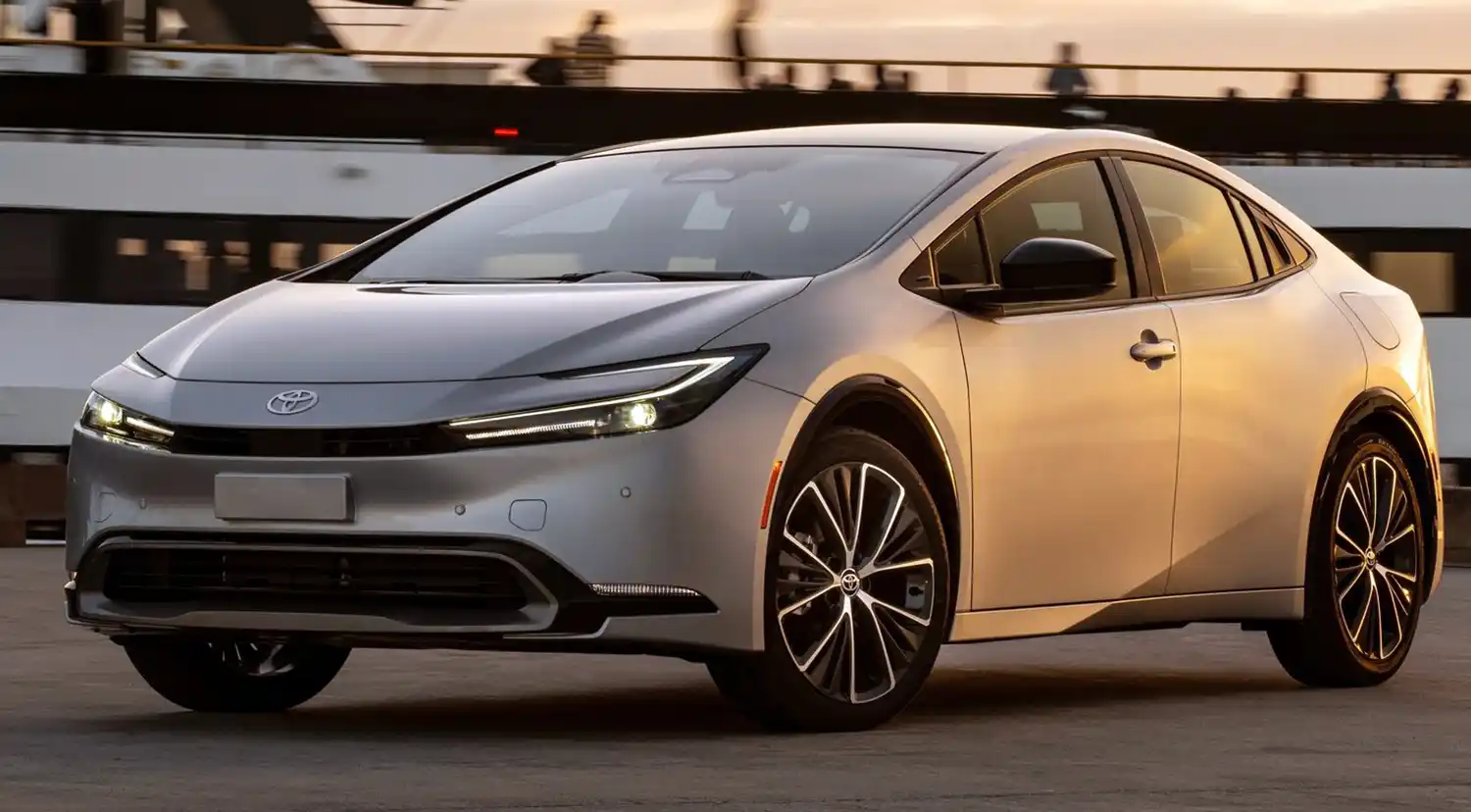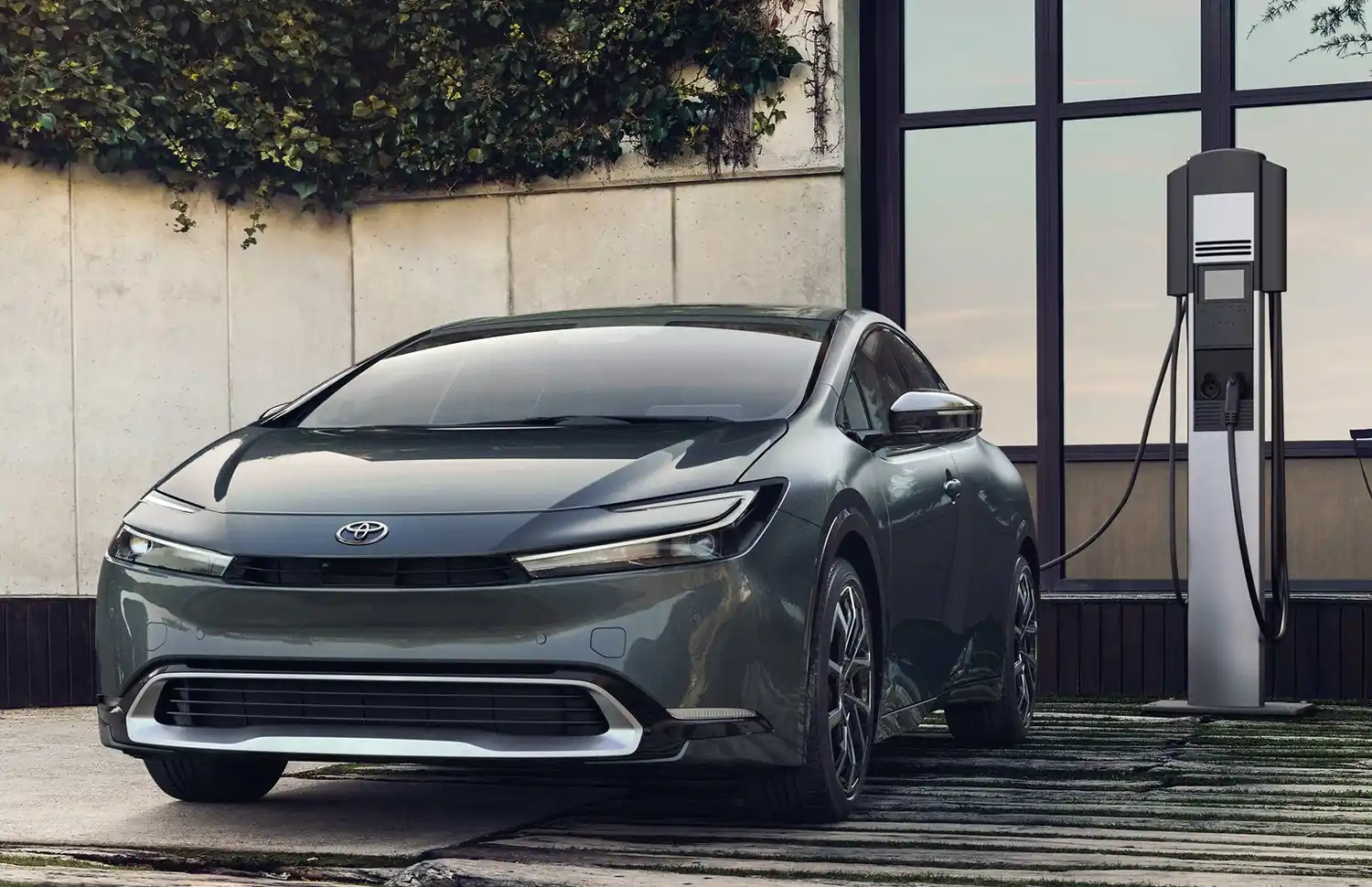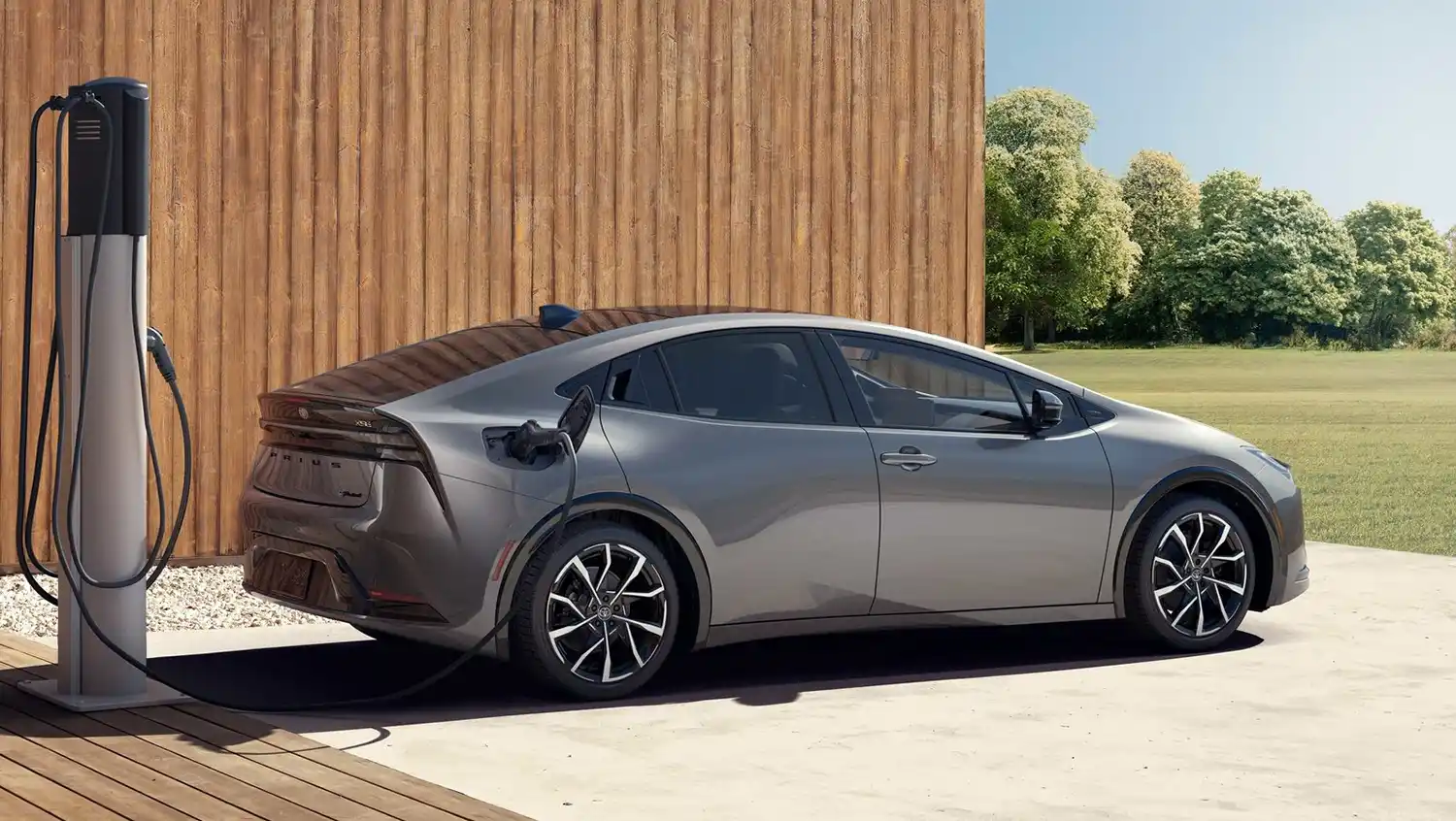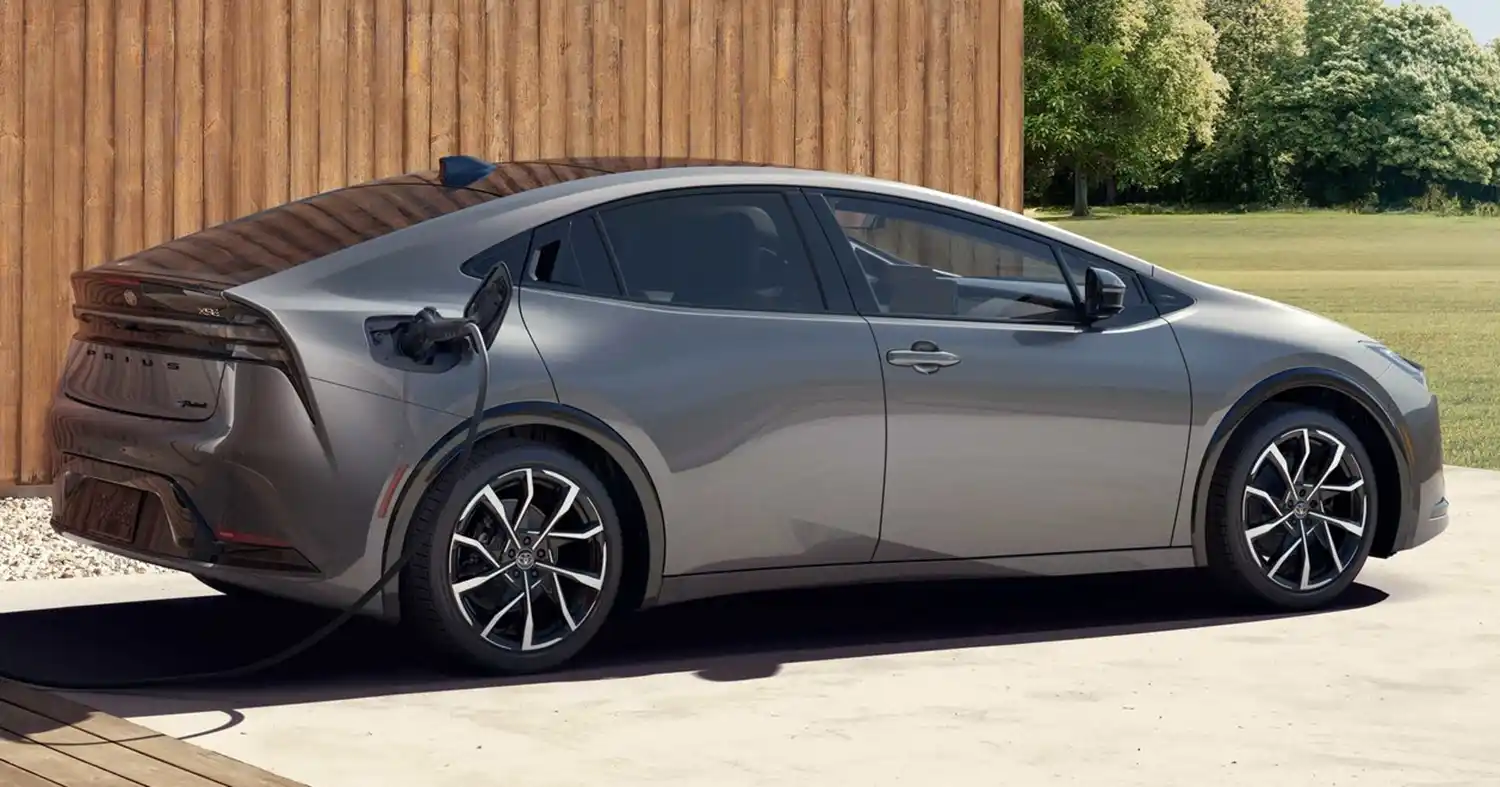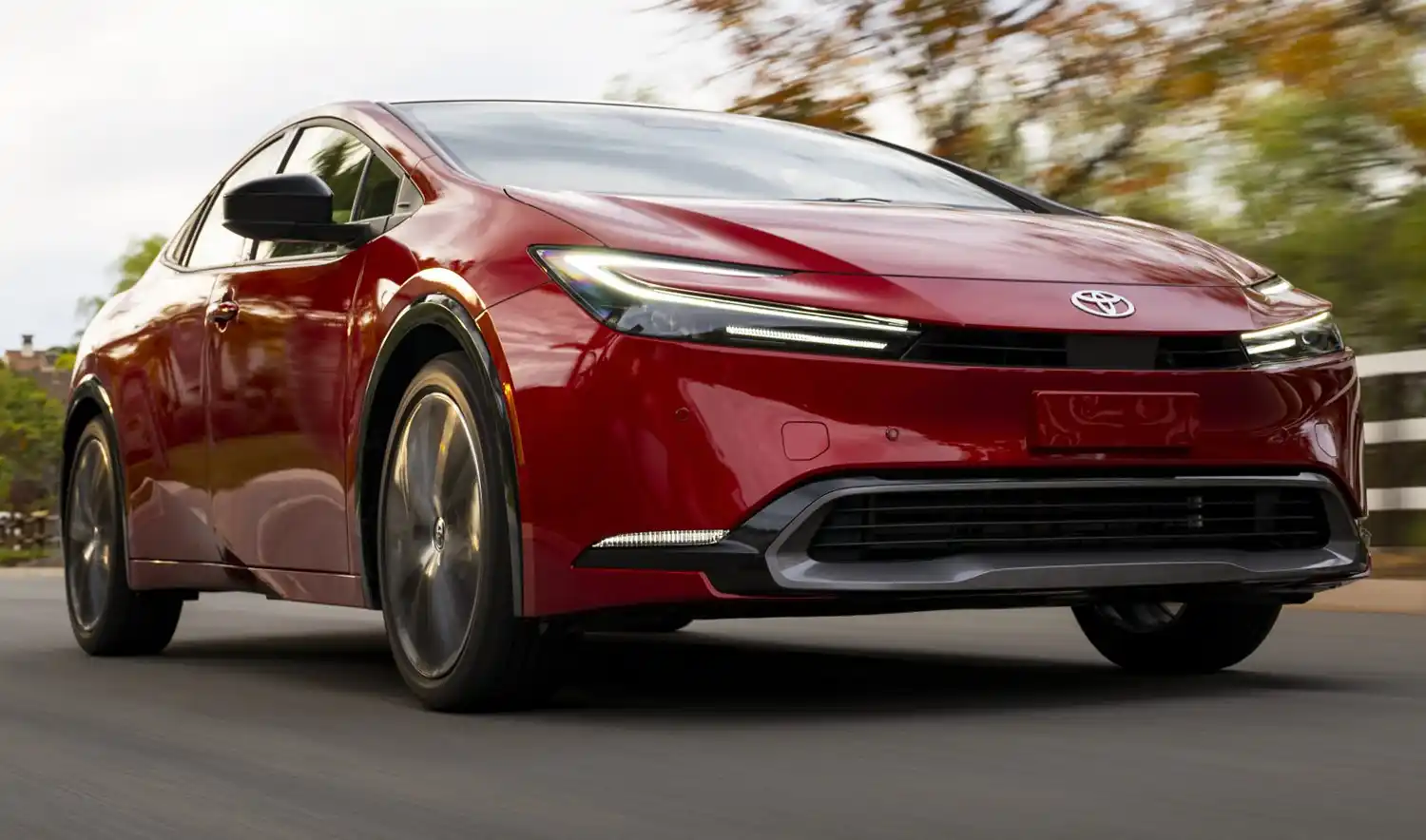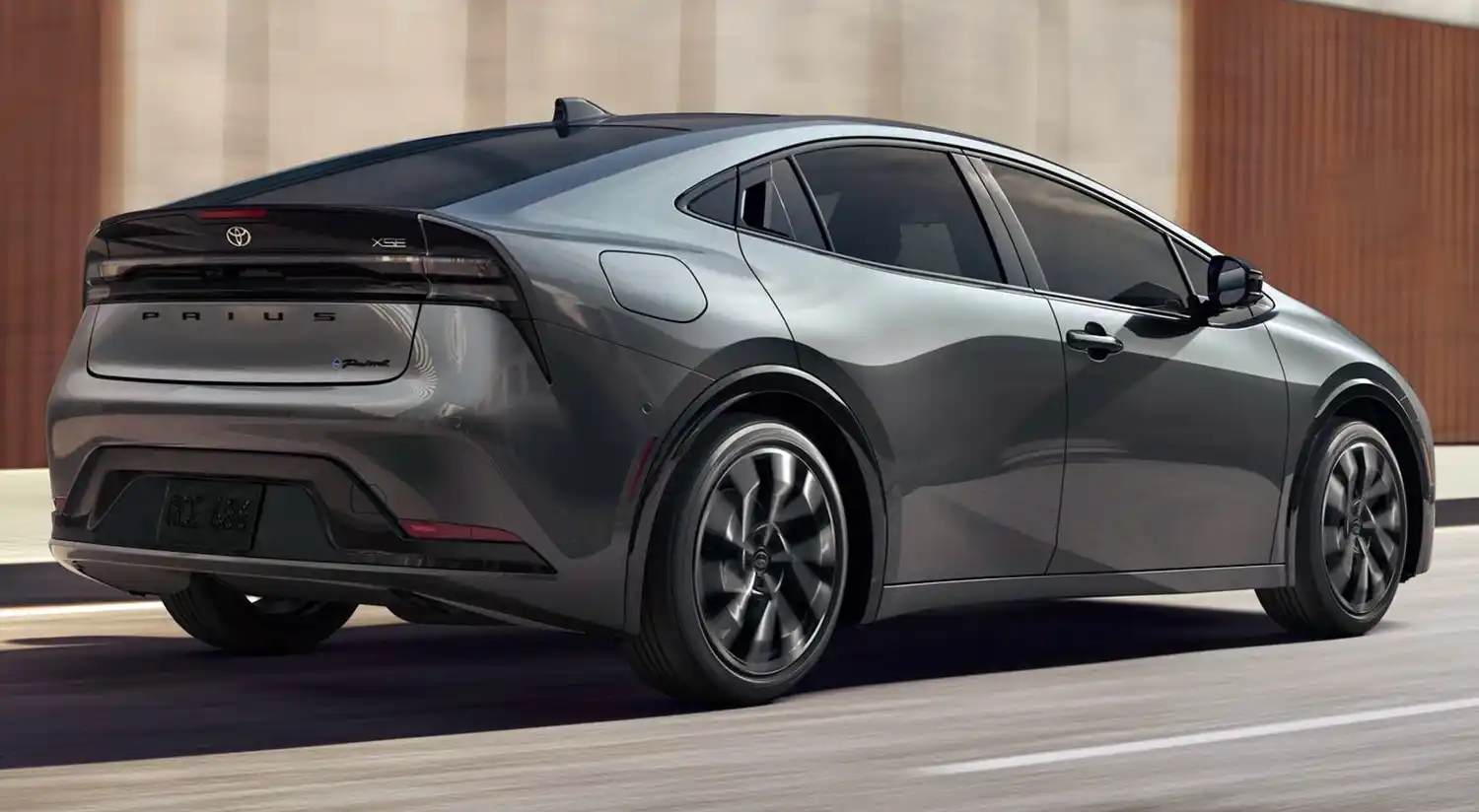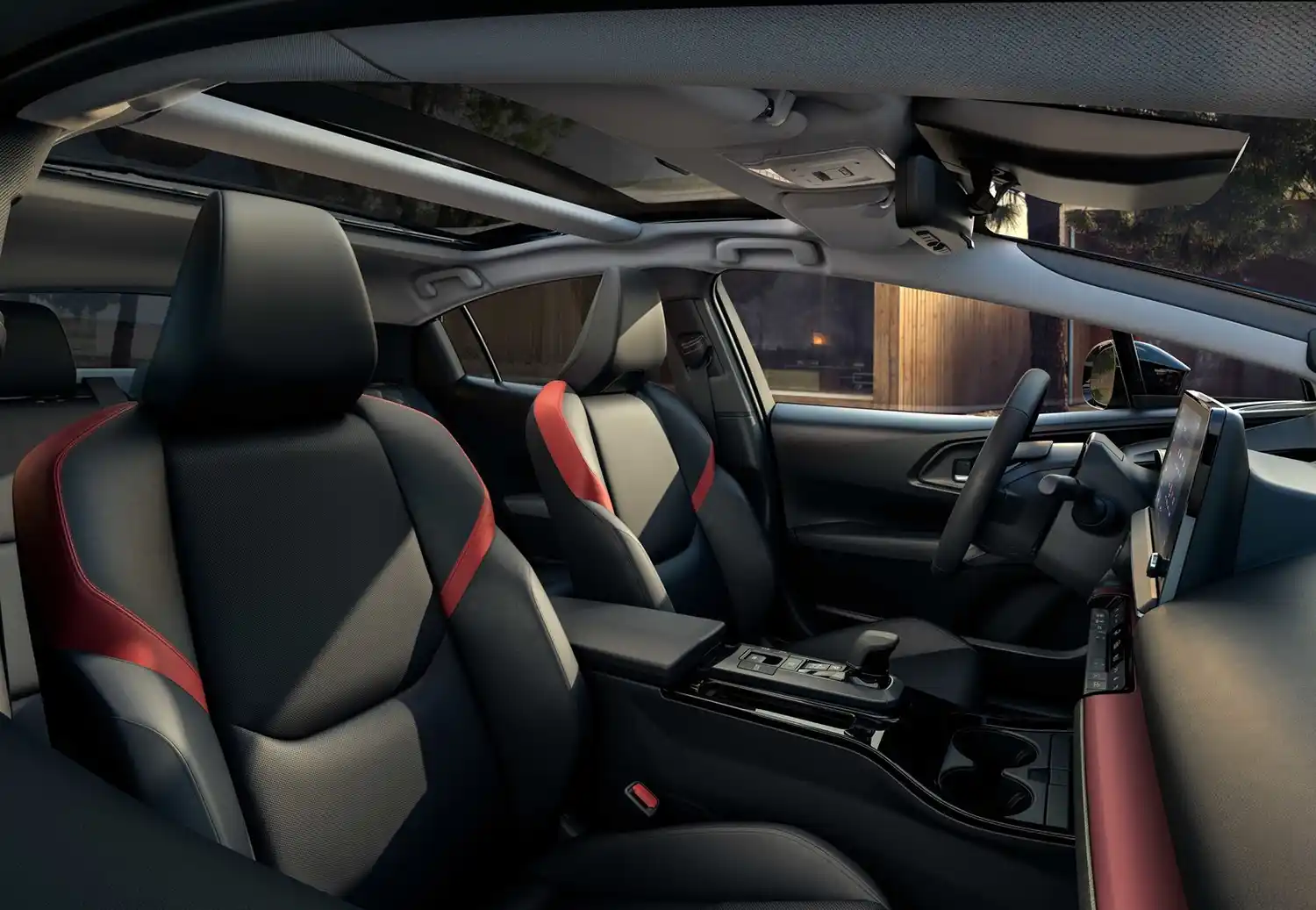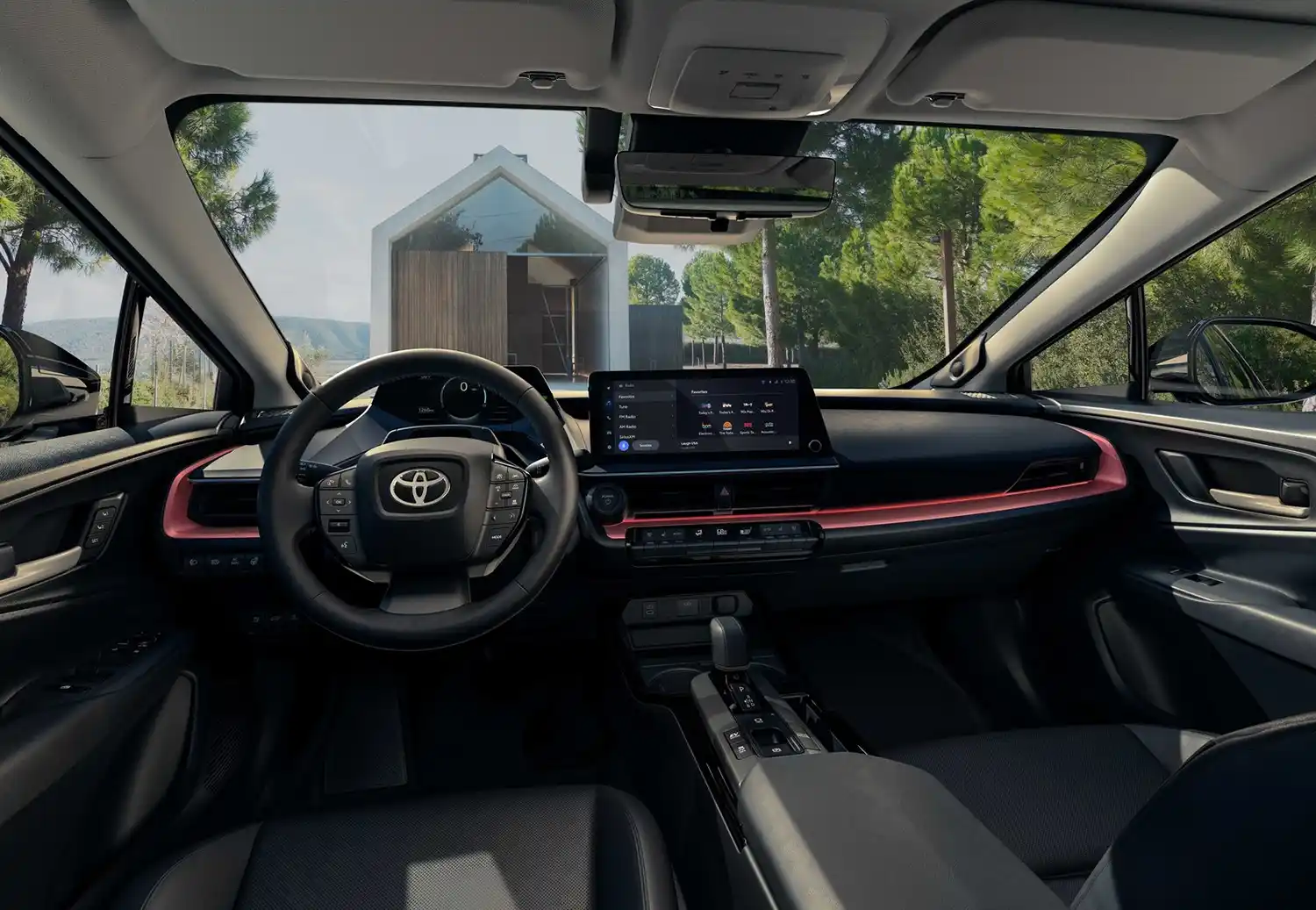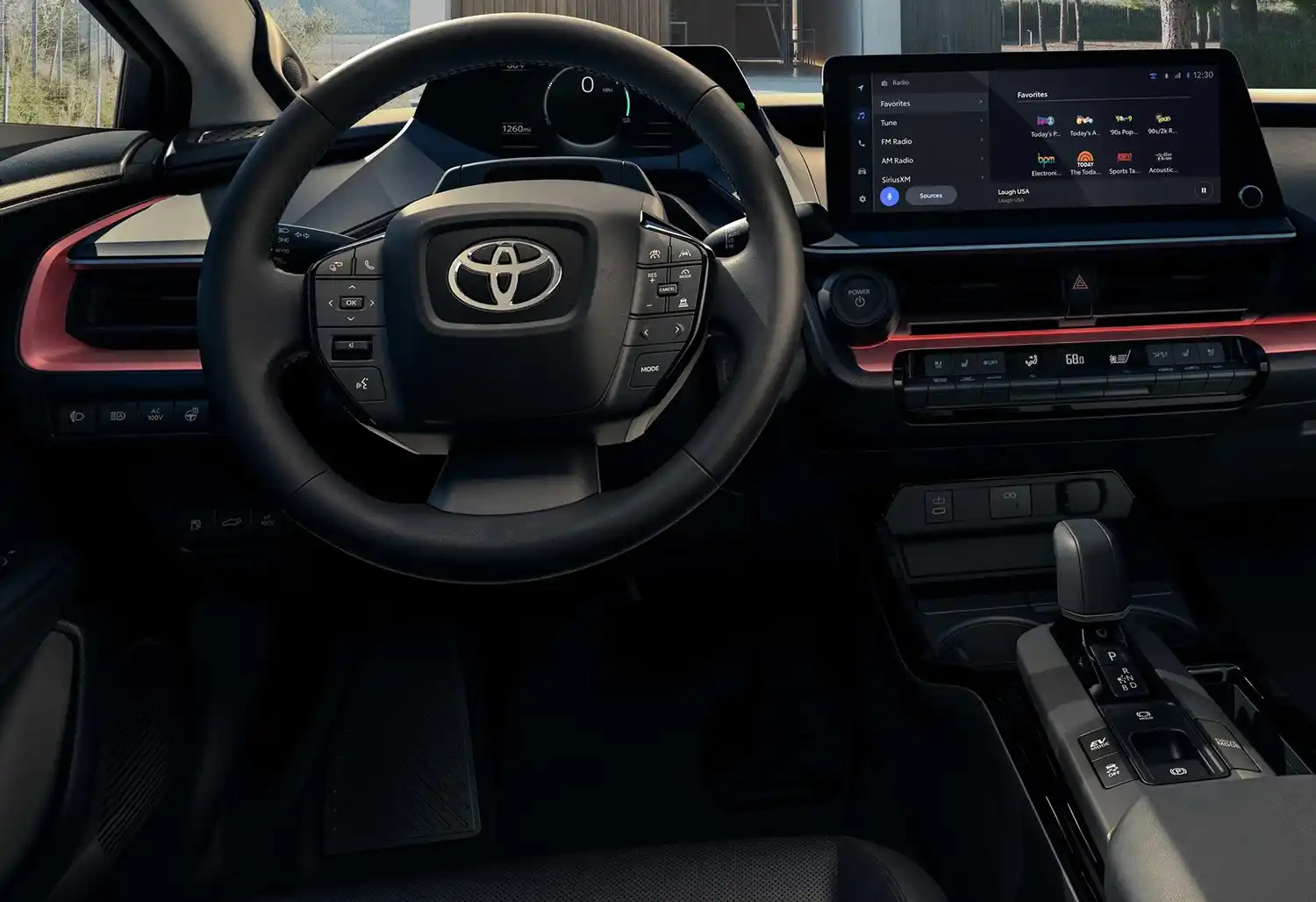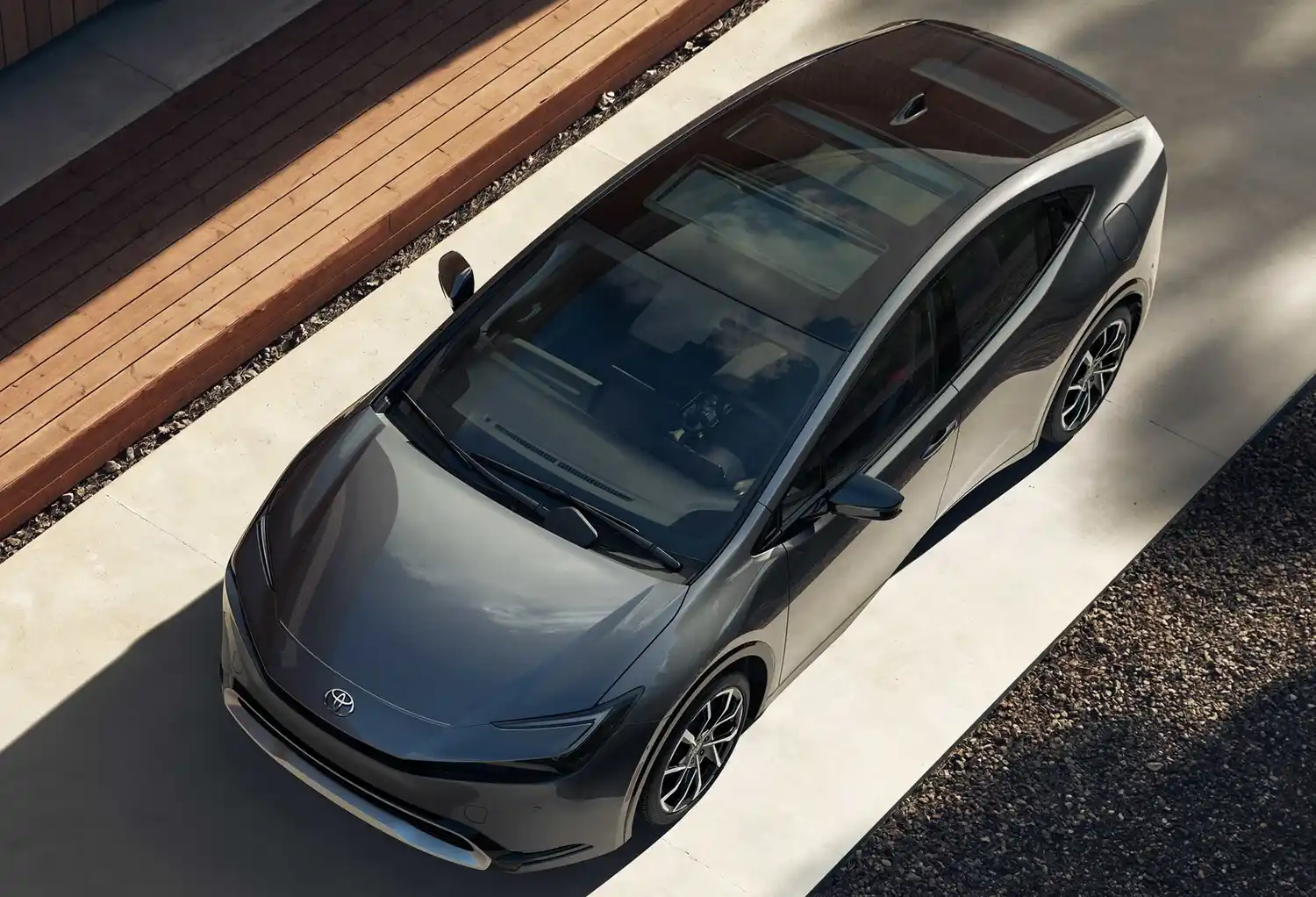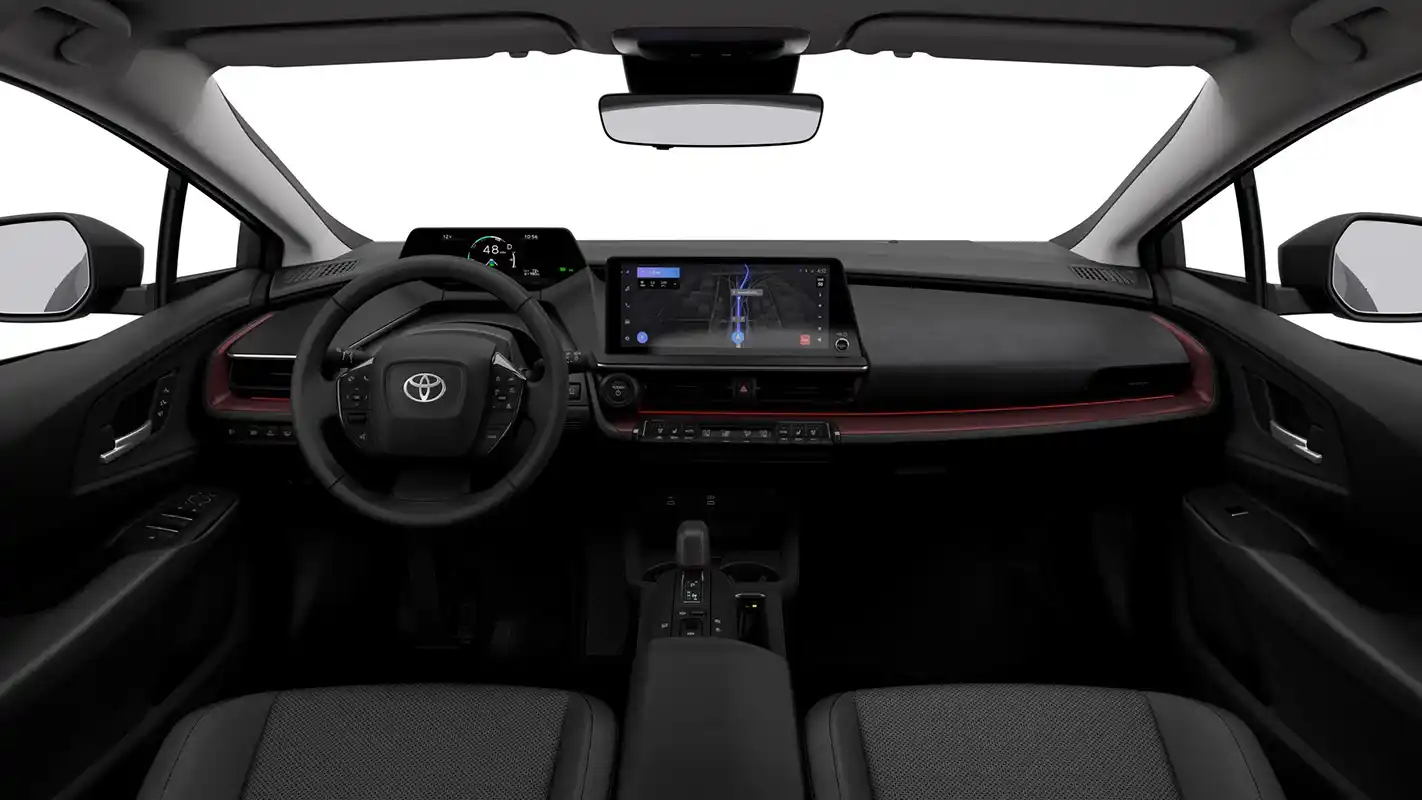
Toyota Motor Corporation (Toyota) announces today that it has commenced sales of all-new Prius Series Parallel Hybrid (HEV) models. It will also launch Plug-in Hybrid (PHEV) models around March this year.
Launched in 1997 as the world’s first mass-produced hybrid car, the Prius has driven uptake of HEVs as a new-generation eco-car with outstanding fuel efficiency. These days, hybrid technologies are employed in a wide range of different models that are loved and enjoyed by people all around the world.
With a range of powertrain options being developed to promote carbon neutrality, Toyota wanted to create a new Prius HEV that customers would enjoy and cherish as the car of choice for generations to come. Developed under the “Hybrid Reborn” concept, this new model is an exhilarating package that adds a design inspiring love at first sight and captivating driving performance to its core strength as an environmentally friendly car.
The main features of the new Prius are as follows.
Vehicle outline – A design inspiring love at first sight
- Inheriting the signature monoform silhouette of the original Prius, the new Prius has been reborn with a lower center of gravity and even more stylish proportions. The simple yet sculpted body expresses exhilaration that appeals to the senses and a universal beauty that will remain popular into the future.
- The “island architecture” concept achieves a low-stress, spacious interior with a cockpit that makes it easy to concentrate on driving. Altogether, the interior offers intuitive operation and an enjoyable driving experience.
- A total of eight body colors are available, including two newly developed, solid base colors of Ash and Mustard that create a sporty impression, bringing touches of color to the daily lives of customers to create a stronger sense of attachment.
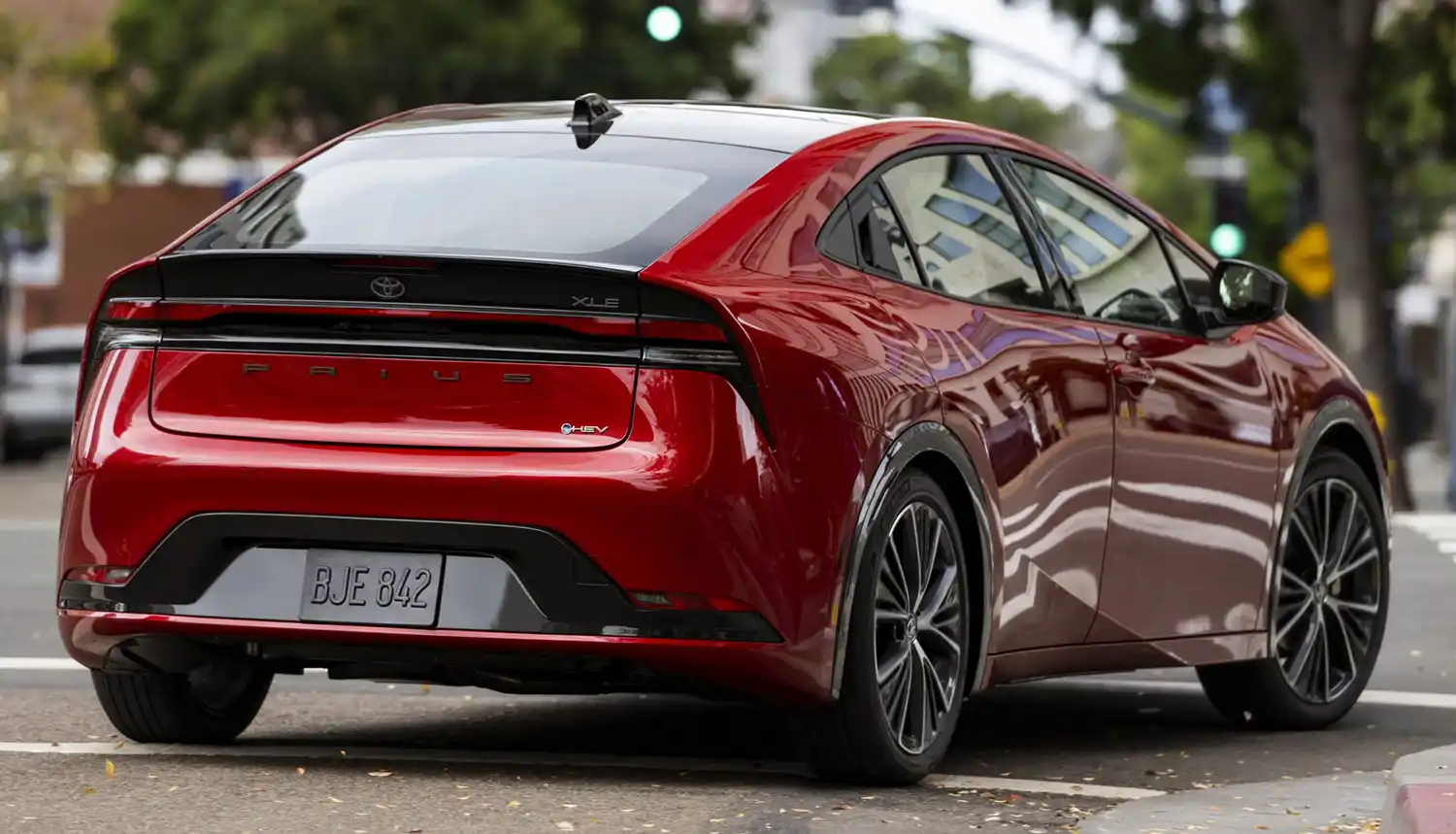
Captivating driving performance
- The new Prius is equipped with the latest fifth-generation hybrid system in both the 2.0-liter and 1.8-liter models.
- Compared to the previous model*1, the 2.0-liter Prius (Z and G grades) achieves improved fuel efficiency of 28.6 km/L*2 and maximum system output of 144 kW (196 PS), which is 1.6 times higher than the previous model*1. This model achieves a high level of balance between the outstanding environmental performance of a Prius and the captivating driving performance of a car that reacts as expected with satisfying acceleration and responsive driving.
- With a long list of improvements, including updates to all electric modules, the 1.8-liter Prius (U and X grades) achieves great fuel efficiency of 32.6 km/L*3. The refined driving performance and seamless acceleration of a hybrid provide feelings of agility when starting off and the responsiveness of direct driving power.
- The second-generation TNGA platform was developed as part of continuing improvement of the matured TNGA platform to achieve the exhilarating styling and driving performance of the new Prius, allowing for a lower center of gravity and large-diameter tires.
- This version comes with the latest E-Four system. Employing a high-output motor and other features, it offers improved uphill performance on low-friction road surfaces, like snow-covered roads, and greater stability when turning.
Advanced Safety and Driving Support Systems
- Toyota Safety Sense, the latest active safety package, is a standard inclusion. Including the Advanced Safety System with an expanded range of detectable objects, the new Prius also comes with the following added features.
- Rear vehicle proximity notification [first for a Toyota brand vehicle*4]Using the Blind Spot Monitor’s rear millimeter-wave radar, this feature detects vehicles in the rear and, if another vehicle is approaching, it alerts the driver via the Multi-Information Display and buzzer.
- Approaching vehicle proximity support (recording function and vehicle reporting suggestions) [first for a Toyota brand vehicle*4]If a vehicle approaching from the rear is too close, this system offers the driver suggestions for dealing with the issue, including contacting the police or the HELPNET emergency call service. In vehicles equipped with a drive recorder, in addition to automatically recording the event, the system stores the data in a dedicated area that makes it difficult to record over.
- Secondary Collision Brake (rear impact mitigation when stopped) [first for a Toyota brand vehicle*4]Using the Blind Spot Monitor’s rear millimeter-wave radar, this system detects vehicles in the rear and, if it determines a very high possibility of a collision while the vehicle is stopped, it applies the brakes to reduce speed if a rear collision occurs. Compared to the previous model, this system enables an earlier reduction in speed by applying the brakes prior to a collision.
Manufacturer’s Suggested Retail Prices – Price range: 2,750,000 yen to 3,920,000 yen
| Powertrain | Transmission | Driveline | Price* (JPY) | |
|---|---|---|---|---|
| X | Series Parallel Hybrid System (2ZR-FXE 1.8-liter in-line four-cylinder engine) | Electric continuously variable transmission | 2WD (FF) | 2,750,000 |
| E-Four | 2,970,000 | |||
| G | Series Parallel Hybrid System (M20A-FXS 2.0-liter in-line four-cylinder engine) | 2WD (FF) | 3,200,000 | |
| E-Four | 3,420,000 | |||
| Z | 2WD (FF) | ◎3,700,000 | ||
| E-Four | 3,920,000 |
